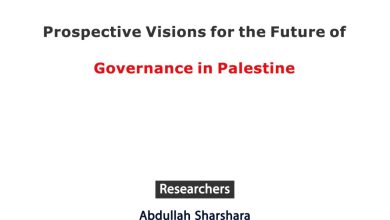Change is in the Air of the Middle East

June, 2009 is a turning point in the Middle East as it promises major moments in the future of the Middle East, President Obama’s address to the Muslim world on June 4th from Cairo , the Lebanese elections on June 7th and the Iranian elections on June 12th. In a matter of 8 days, the face of the Middle East will inevitably change. The outcome of the upcoming events and the lasting implications of these moments remain uncertain. The uncertainty surrounds the question of how these events will shape the reactions of moderate nations such as Egypt, Syria, and Saudi Arabia; as well as how these moments will affect the various files within the case of the Middle East.
US foreign policy towards the Middle East:
Expectedly, the speech of Pres. Obama to the Muslim world will set the stage for June’s events. The day and the place to make such speech was intentionally planned for these reason A) the 4th of June comes before the two major elections and B) Cairo is the largest Arab capital and the one of the strongest alliance to the US in the Middle East. Despite the fact that American foreign policy, is not a one man show, the general, global public believes that Obama is not simply a cosmetic change, but a fundamental change within the American mentality to be reflected in policy. Naturally, The US is an institution and all degrees of foreign policy are based on a combination of factors. One can only hope that having a Black man in the white house will color change in policy, as well as the mentality of the American people; especially considering the wreckage which remains of the Bush administration. At the end of the day, it is important to acknowledge that this change will not necessarily be good for the Palestinians.
Extremism in the Region
The aftermath of June’s latter events will be both obvious and immediate. In both cases elections are predicted to change the balance of power in the Middle East. There are initial indicators in Lebanon which insinuate Hezbollah will gain more seats which will affect the power players of politics within Lebanon–and thereafter the position of Lebanon in the region. Vice President Biden’s recent visit to Lebanon 2 weeks ago is a clear indicator of the importance of the Lebanese elections. While in Lebanon, Biden promised military support. The message is loud and clear, the United States is committed to the Lebanese government. (As it stands.) This preemptive foreign policy will inevitably influence the political reality within Lebanon.
Five days after Lebanon’s big moment, Iran will take center stage and indications imply Iran will follow the path Lebanon paves. There are strong projections that Iranian elections will yield similar results to projection in Lebanon; the radicals will gain more seats, and Ahmadinijad will get re-elected. Therefore, having both at the same time in the Middle East will not only shape the Lebanese and Iranian political map specifically, but the Middle East region generally. The Middle East after June will not be the same.
The question is, will June’s events bring moderate people to power? If moderates are elected, Obama will be more capably of realizing his global promise of change, on the other hand, an election of extremism might encourage President Obama to hold his breath and tread lightly. Ultimately, US foreign policy is not decided by the internal element only, or the wishes of the Americans only, instead it is a reaction to other country’s policies. Obama once said “I might look skinny but I’m really tough…” basically, don’t underestimate the skinny man, he just might surprise you.
In fact, his gumption and will was quite clear when he recently met with Netanyahu in Washington. Obama’s meeting with Netanyahu was not successful and the ideological division between the two was quite clear. Bluntly, there was speculation that the meeting exploded. Netanyahu made it clear before going to the US, that he does not believe in a Palestinian state and he will not go back to ’67 borders. Obama on the other hand, diplomatically enhanced the American position that having a Palestinian state is a benefit to Israel. We shall see what he has to say on Egyptian soil. It is important to remember, the higher the expectations, the deeper the failures.
Egypt and the Palestinian Divide
No matter what, June’s events will greatly affect the balance of power in the Middle East. Historically, Egypt has been the big man on campus with relation to the community of Middle Eastern nations. As movements of political Islam gain stride throughout the region, the strength of the secular Egyptian government is simply less stable. All things considered, Egypt has strategically kept the Palestinian card in hand. Egypt claims that the 7th of July will be the “last round of negotiations” regarding the Palestinian divide. Egyptian policymakers have purposefully planned to hold another round of negotiations after assessing the implications of the major events in June. Egypt wants to make it known that they are not weak, instead that they remain strong; enough to be the guardians of the Palestinian issue.
When assessing the balance of power in the region it is important to remember that while it is likely that Egypt attains signatures and handshakes, the foundation of the confrontation will continue, unchanged. It is important to recall that Egypt has not been successful when it comes to dialogue between Fatah and Hamas. On the contrary, recent history proves Egypt has a track record of inconclusive and failed negotiations. Words between the two parties were exchanged in November 2008, and again in February and April 2009 on Egyptian soil and neither side has changed its political treatment of the other. The key issues remain unresolved, negative propaganda regarding the other continues, alongside the continued policy of arresting supporters of the other both in Gaza and the West Bank.
It must be said that while policy change is a long shot, an official reconciliation is highly likely. Both parties are not in a position to say “no” to Egypt, both parties want to show their people that they are willing and able to reconcile. No doubt, Egypt will “officially” reconcile Fatah and Hamas on paper, the reality is that nothing will change in practice. July’s negotiations are nothing more than a facade of Egyptian strength and Palestinian reconciliation. So long as the Egyptian negotiations skirt the real issues–as they have done in the past–we should expect nothing more than lip service.
The summer of 2009 will change the face of the Middle East and June 4th will start the summer with a bang! The suspense of the upcoming events is overwhelming; the implications of the expectations are gargantuan. At the end of the day, only time can tell what the future will bring. While it’s still too early to know exactly how it will affect us all, there are no doubt we will all be affected?





